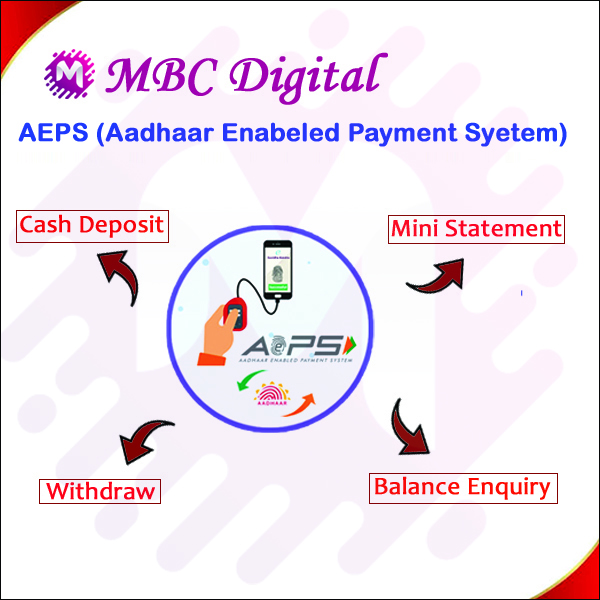AEPS stands for Aadhaar Enabled Payment System. It is a secure and interoperable system that allows Aadhaar cardholders to make financial transactions through micro-ATMs using their Aadhaar number and fingerprint authentication. AEPS is an initiative by the National Payments Corporation of India (NPCI) to promote financial inclusion and provide basic banking services to people in remote and rural areas.
Here are some key details about AEPS:
- **Authentication: ** AEPS relies on the unique identification of individuals through their Aadhaar number and biometric authentication (fingerprint or iris scan). This ensures a secure and reliable method of verifying the identity of the user.
- **Services: ** AEPS allows users to perform basic banking transactions such as cash withdrawal, balance inquiry, and fund transfer. These services are provided through business correspondents or micro-ATMs, which are often located in local shops or business centres.
- **Participating Banks: ** AEPS services are offered by various banks and financial institutions in India. These banks are linked to the Aadhaar system and provide the necessary infrastructure for AEPS transactions.
- **Interoperability: ** One of the key features of AEPS is its interoperability, which means that users can access AEPS services across different banks and service providers. This promotes financial inclusion and allows users to access banking services even if they don't have an account with a particular bank.
- **Benefits: ** AEPS is particularly beneficial for people in rural and remote areas who may not have easy access to traditional banking services. It provides a convenient and secure way for them to perform basic financial transactions.
- **Security Measures: ** AEPS transactions are secured through the use of Aadhaar-based biometric authentication, adding an extra layer of security. This helps in preventing unauthorized access to the individual's financial information.
It's important to note that the information provided here is based on my knowledge up to January 2022, and there may have been updates or changes to AEPS or related systems since then. Always check with official sources or relevant authorities for the most current information.
